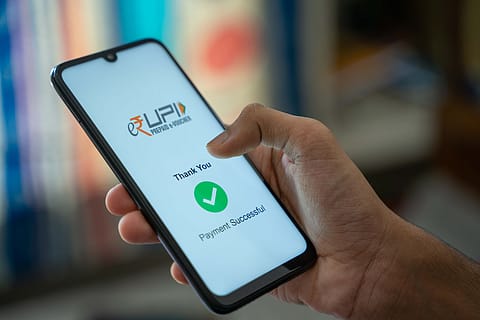Navi UPI launches biometric-based UPI payments, eliminating the need for PIN
Announced at the Global Fintech Festival 2025, this feature enhances security and convenience, aiming to set a new benchmark in digital payments by reducing transaction failures and phishing risks.

Financial services company Navi UPI (formerly known as Navi Technologies Ltd) has launched biometric authentication, thus simplifying the onboarding for users at the Global Fintech Festival 2025. The company claims to be the first UPI app in India to introduce biometric-based payments at scale, allowing users to authenticate transactions using their phone’s fingerprint or face recognition, no PIN required.
How does biometric authentication work?
Built on OS-native technology, biometric authentication enables faster UPI payments as users can now approve transactions directly on their devices, without needing to remember or enter a PIN each time. Since authentication happens within the phone’s secure environment, personal data never leaves the device -- making it one of the safest ways to pay.
The feature aims to reduce failed transactions, improve ease of use, and offer stronger protection against phishing and social engineering risks. Users can enable or disable biometric authentication anytime within the app.
“Security and simplicity have always been the key pillars of our product philosophy,” said Rajiv Naresh, MD & CEO of Navi Limited (formerly Navi Technologies Limited). “With these new rollouts, we’re setting a new benchmark for trust and convenience in digital payments.”
Both features are being introduced in phases across Android and iOS devices, and will be available to all Navi UPI users over the coming days.
Recently, a startup based in Gurugram came up with a solution that does not even require a smartphone to make a payment. Proxgy, an Internet of Things (IoT) deeptech startup, announced ThumbPay, a first-of-its-kind biometric payment concept that allows people to pay using just their thumb.
Recommended Stories
After the successful closed-loop pilot, Proxgy is now working on compliance approvals from UIDAI and NPCI. If cleared, Proxgy plans a phased rollout starting with leading banks, before expanding across fintech nationwide.